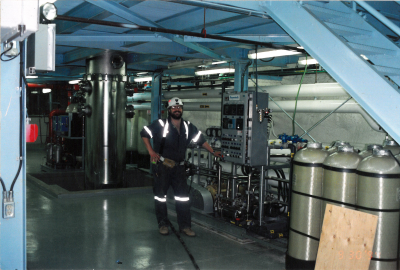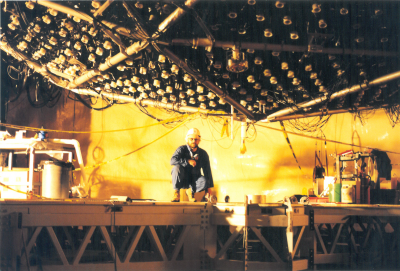This year’s Noble Prize in Physics has been awarded to both Arthur Macdonald, a professor emeritus at Queens University and director of the Sudbury Neutrino Observatory (SNO) in Northern Ontario, and Japanese scientist Takaaki Kajita, for their discovery of neutrino oscillations and contributions to experiments showing that neutrinos change identities.
The fact that Neutrinos can change identities means they have mass, according to the rules of quantum physics, and knowing that has helped cosmologists understand how the universe evolved, how the sun works and how supernova explosions occur. Congratulations to both Arthur and Takaaki!
We at the Science Technology Centre are very proud of Arthur and everyone at the SNO lab for their scientific discoveries and are very happy to have been involved with this project ourselves.
For two years here at Carleton, Steve Tremblay, our Mechanical Supervisor, worked with physicists, chemists, and engineers to develop a light water purification system, where part of the work involved measuring Radium and Thorium decays in the water. This information proved to be critical for the SNO detector background once built. The SNO detector was later able to prove that neutrinos do in fact have mass.

Steve Tremblay, behind the scenes at SNO
Steve then spent a year up north at the SNO lab working on all aspects of the detector installation as a shift supervisor for the utility room. He also went back to the lab regularly to develop jigs and fixtures for the acrylic vessel.
Throughout this entire process, the Science Technology Centre did what they do best and supplied custom manufactured parts in support of this research work.
As the New York Times writes, these neutrino experiments and discoveries “rewrote the balance sheet of the universe”. The Science Technology Centre is proud to have played a role in supporting this research and we are excited about all the future discoveries that are realized thanks to Arthur Macdonald and Takaaki Kajita’s achievements.
